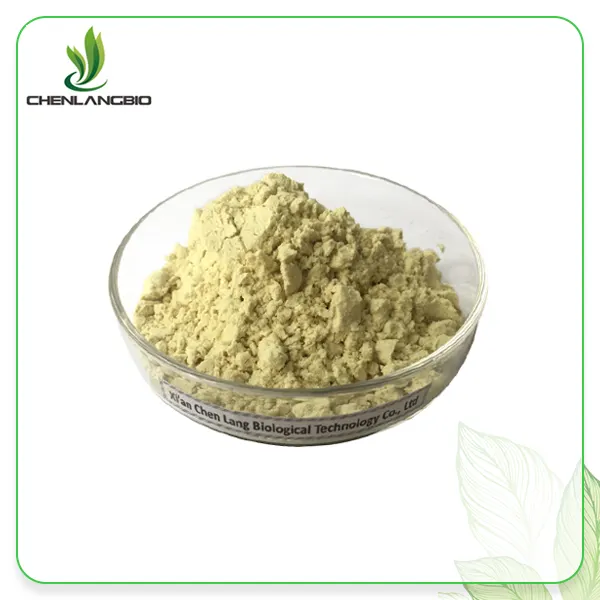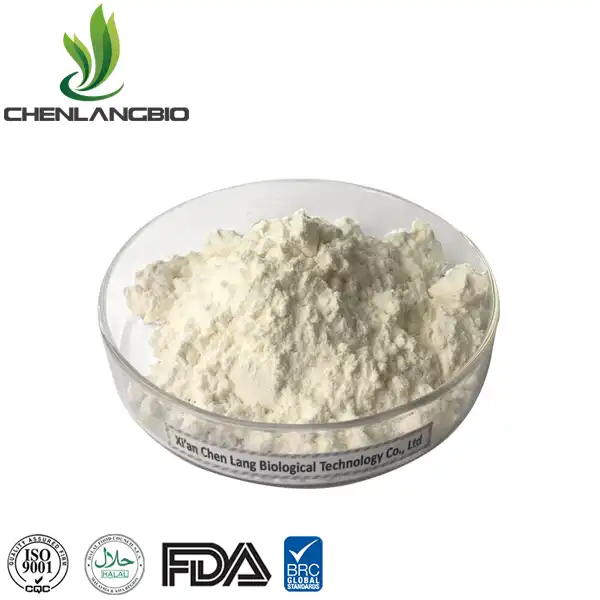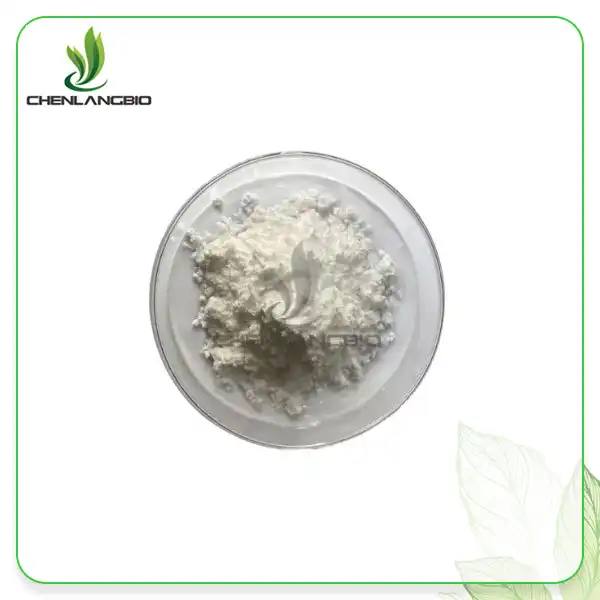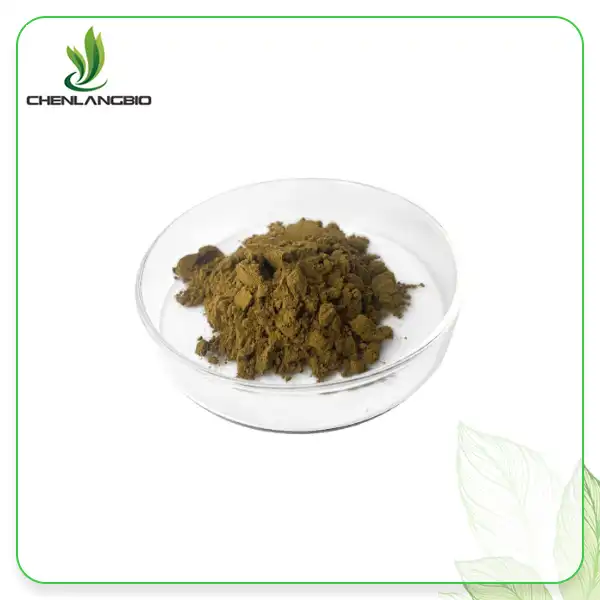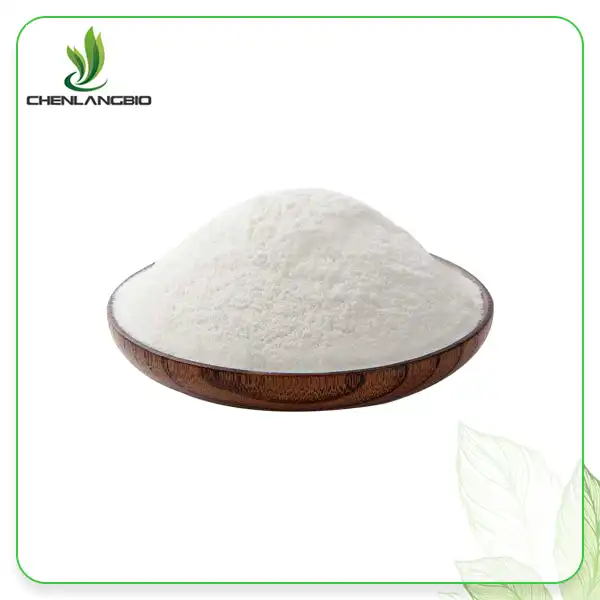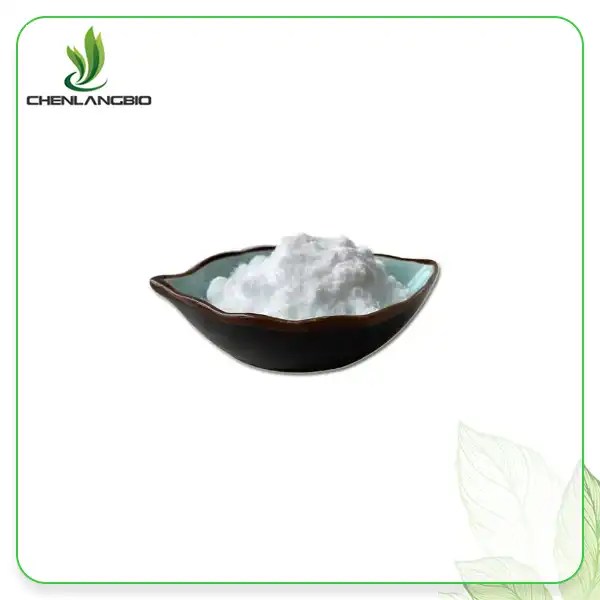What Is The Ingredient Isoleucine
2024-06-15 21:49:38
Isoleucine is one of the essential amino acids that our bodies cannot produce on their own, necessitating its intake through diet or supplements. As a branched-chain amino acid (BCAA), along with leucine and valine, isoleucine plays a crucial role in various physiological functions, particularly in muscle metabolism and energy production. This blog explores the multifaceted benefits of isoleucine, focusing on its applications in health and fitness.
How Does Isoleucine Support Muscle Growth and Recovery?
Isoleucine is renowned for its significant role in muscle growth and recovery, making it a popular supplement among athletes and bodybuilders. During intense physical activity, muscle tissues experience stress and damage, necessitating repair and growth. Isoleucine aids in this process by promoting muscle protein synthesis and reducing muscle protein breakdown.
Why is Isoleucine Important for Athletes?
Athletes frequently use isoleucine supplements to enhance muscle recovery and reduce soreness post-exercise. Studies have shown that isoleucine, in conjunction with other BCAAs, can significantly improve muscle repair and reduce muscle soreness. This amino acid increases the body's ability to use glucose during exercise, providing a vital energy source and enhancing endurance and performance.
Moreover, isoleucine contributes to the formation of hemoglobin, the protein responsible for oxygen transport in the blood. Efficient oxygen delivery to muscle tissues during strenuous activities is essential for sustaining performance and delaying fatigue, thereby supporting overall athletic performance.
Muscle Recovery and Protein Synthesis
Isoleucine's role in muscle protein synthesis is particularly critical. It activates key pathways that lead to the formation of new proteins in muscle cells, facilitating the repair of damaged tissues. This process not only helps in faster recovery but also contributes to muscle hypertrophy, or growth, which is a primary goal for bodybuilders and athletes.
During muscle protein synthesis, isoleucine triggers the mTOR pathway, a crucial signaling route that regulates cell growth and muscle protein production. This pathway's activation ensures that muscle cells can efficiently use amino acids to rebuild and strengthen muscle fibers. Consequently, isoleucine supplementation supports the body's anabolic processes, essential for muscle maintenance and growth.
Role in Muscle Catabolism Prevention
Apart from stimulating muscle protein synthesis, isoleucine also helps prevent muscle protein breakdown, a process known as muscle catabolism. During intense exercise or periods of fasting, the body might break down muscle tissue to use amino acids as an energy source. Isoleucine helps mitigate this breakdown by providing an alternative energy source, sparing muscle proteins and preserving muscle mass.
Enhancing Muscle Repair
The repair of muscle fibers damaged during exercise is a critical aspect of recovery. Isoleucine aids this process by promoting the synthesis of new proteins that replace damaged ones. Additionally, isoleucine supports the proliferation of satellite cells, which are involved in muscle repair and regeneration. These cells contribute to muscle growth and repair by fusing with damaged muscle fibers, increasing their size and strength.
Supporting Muscle Endurance
Isoleucine also enhances muscle endurance by improving energy availability during exercise. It plays a role in the metabolism of glucose, ensuring a steady supply of energy to muscle cells. This energy provision helps delay the onset of fatigue, allowing athletes to train longer and more effectively. By maintaining energy levels and supporting muscle function, isoleucine helps improve overall athletic performance and recovery.
How Does Isoleucine Regulate Blood Sugar Levels?
Isoleucine plays a vital role in regulating blood sugar levels, which is crucial for metabolic health. It enhances glucose uptake into cells, ensuring stable blood sugar levels and providing a steady supply of energy.
What Are the Benefits of Isoleucine for Blood Sugar Control?
Isoleucine facilitates insulin-independent glucose uptake in skeletal muscle cells, significantly lowering blood sugar levels. This mechanism is beneficial for individuals with diabetes or those at risk of developing the condition. Studies have demonstrated that isoleucine supplementation can improve insulin sensitivity and reduce blood sugar levels, making it a valuable tool for managing diabetes.
Additionally, isoleucine inhibits hepatic gluconeogenesis, the process by which the liver produces glucose. This inhibition further aids in maintaining stable blood sugar levels. By preventing excessive glucose production, isoleucine helps in managing blood sugar levels effectively, contributing to overall metabolic health.
Isoleucine and Metabolic Health
Isoleucine's role in metabolic health extends beyond blood sugar regulation. It also impacts lipid metabolism, helping to manage cholesterol levels and reducing the risk of cardiovascular diseases. By supporting metabolic processes, isoleucine contributes to overall health and well-being.
Can Isoleucine Enhance Immune Function?
Isoleucine, one of the essential branched-chain amino acids (BCAAs), is not only vital for muscle growth and recovery but also plays a crucial role in supporting the immune system. This amino acid is involved in several physiological processes that enhance the body's ability to defend against infections and maintain overall health.
How Does Isoleucine Support Immune Function?
Isoleucine contributes to immune function in multiple ways:
Protein Synthesis and Immune Cell Production:
Isoleucine is integral to the synthesis of proteins necessary for the production of immune cells, including antibodies and lymphocytes. These cells are critical components of the immune system, helping to recognize and combat pathogens such as bacteria and viruses. By supporting the creation of these cells, isoleucine enhances the body's capacity to respond to infections.
Energy Provision for Immune Responses:
During an immune response, the body requires a significant amount of energy. Isoleucine helps in the metabolic processes that provide this energy, particularly in periods of stress or infection. By ensuring a steady supply of energy, isoleucine enables immune cells to function efficiently and respond rapidly to threats.
Detoxification and Nitrogen Balance:
Isoleucine assists in detoxifying nitrogenous wastes, which are byproducts of protein metabolism. Effective detoxification supports immune function by maintaining a balanced internal environment, reducing the burden on the body’s defense systems. This process also helps to regulate nitrogen levels, which is crucial for the synthesis of immune proteins.
Specific Benefits of Isoleucine for the Immune System
Enhanced Antibody Production:
Antibodies are proteins produced by the immune system to identify and neutralize foreign invaders. Isoleucine promotes the synthesis of these antibodies, boosting the body's ability to defend against infections. This is particularly beneficial in supporting a quick and effective immune response.
Improved Oxygen Delivery:
Isoleucine contributes to the production of hemoglobin, the oxygen-carrying component of blood. Adequate oxygen delivery is essential for the optimal functioning of immune cells. By ensuring that immune cells receive sufficient oxygen, isoleucine enhances their efficiency and effectiveness in combating pathogens.
Support for Immune Cell Function:
The proliferation and differentiation of immune cells, such as T-cells and B-cells, are crucial for a robust immune response. Isoleucine supports these processes by providing the necessary building blocks for protein synthesis. This support helps maintain a dynamic and responsive immune system capable of adapting to various challenges.
Conclusion
Isoleucine is a versatile amino acid with numerous health benefits, particularly for muscle growth and recovery, blood sugar regulation, and immune support. Its importance in athletic performance and metabolic health makes it a valuable addition to the diet of individuals seeking to enhance their overall well-being. As research continues to uncover more about its potential therapeutic applications, isoleucine is likely to gain further recognition in the fields of nutrition and medicine. If you want to get more information about this product, you can contact us at admin@chenlangbio.com
References
Send Inquiry
Related Industry Knowledge
- Asiaticoside Powder vs Madecassoside: Which Is Better?
- What is the Difference between Chondroitin Sulfate and Glucosamine?
- What are the Differences between Calcium Alpha-Ketoglutarate and Other Calcium Supplements?
- Is Minoxidil Powder Effective for Hair Regrowth?
- Are Hops Flavonoids Safe to Consume
- What Are the Do's and Don'ts of Bakuchiol
- What Is The Use Of Permethol
- Can Dihydroavenanthramides Help With Eczema
- What is Cyanotis Arachnoidea Extract
- Is Lotus Leaf Extract Powder Good for Weight Loss


